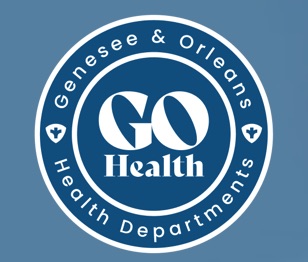When doing home renovations, Health Department urges precautions from lead dust
Press Release, Genesee & Orleans County Health Departments

Homes built before 1978 are more likely to have lead-based paint that can be disturbed when renovating. Renovations can put lead dust into the air as well as into heating and cooling systems of homes with lead-based paint.
Children (and adults) exposed to this lead dust are at risk of lead poisoning. There is no safe level of lead to have in the body. The effects of lead poisoning are permanent and can affect a child into adulthood.
“Lead poisoning can affect anyone, but is especially dangerous for infants and small children,” stated Paul Pettit, Public Health Director for the Genesee and Orleans County Health Departments (GO Health). “Childhood lead poisoning can harm the brain and nervous system leading to learning challenges, lower IQ, difficulty in paying attention/hyperactivity, kidney damage, and at very high levels can be fatal. Lead poisoning can also be dangerous for pregnant women because lead can pass to the baby during pregnancy.”
While thinking about renovation plans for this summer, consider using a lead-safe certified contractor if you live in a home built before 1978. If planning to do the work yourself, here are some simple steps you can take to keep both you and your family safe.
1. Set up safely in a way that should prevent dust from escaping the work area and keep anyone not working on the project from entering. This can include removing all furniture, rugs, curtains, and other household items, tightly wrapping items that cannot be removed with plastic sheeting, covering floors with plastic sheeting, closing and sealing all doors, turning off forced-air heating and air conditioning systems, and covering vents with sheeting. All sheeting should be taped in place to ensure it is secure.
2. Protect yourself. Wear proper personal protective equipment (PPE) when working, wash your hands and face every time you stop working, wash your work clothes separately from the rest of your family’s laundry, and do not eat, drink, or smoke in your work area. Dust and debris can contaminate food or other items and cause you to ingest dangerous lead dust.
3. Minimize Dust. Many renovation tasks (drilling, cutting, opening walls, etc.) create dust that may contain lead. Using proper tools and simple practices can help limit and control the dust.
4. Clean your work area at the end of every day. This helps minimize dust and protects you and your family. Easy ways to keep your work area clean include; putting trash in heavy-duty bags as you work, vacuuming with a High Efficiency Particulate Air (HEPA) cleaner frequently, cleaning tools daily, disposing of or cleaning PPE, and keeping non-workers out of the work area.
5. Control Waste. Collect all waste and secure it tightly with duct tape or a double bag to prevent lead dust or debris from escaping before disposal.
6. Clean again. When your renovations are complete and before using the room again, use wet-cleaning methods in order to control the dust and prevent the dust from going back into the air. Make sure to mop uncarpeted floors thoroughly, clean walls with a HEPA vacuum or damp cloth, thoroughly vacuum all remaining surfaces and objects with a HEPA vacuum and then wipe down all surfaces with wet cloths until the cloths are clean.
For any questions and more information on GO Health Lead Programs, contact the Genesee County Health Department at (585) 344-2580 ext. 5555 or Health.GOlead@co.genesee.ny.us. You can also visit the GO Health website at www.GOHealthNY.org.



























































